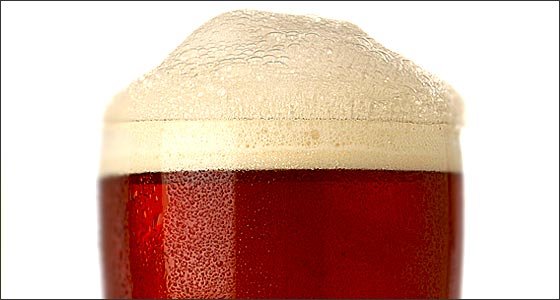
By JANE MCCLURE St. Paul craft brewers will have an easier time opening tap rooms in more neighborhoods as the St. Paul City Council has approved zoning changes. The council approved the changes March 27, following a March 20 public hearing. The changes will allow small brewers of malt liquor to open tap rooms and sell their wares, in properties zoned for some commercial and traditional neighborhood uses. Previously tap rooms were only allowed in industrially zoned areas. The change could also allow brewers to open restaurants and in wards where on-sale liquor licenses are available, become a full bar. The proposed changes are in response to the growing popularity of craft beers. Currently the only places where a tap room can be located with a brewery are in an industrial district. That’s the case for Summit Brewing Company. Bang Brewing Company is building a brewery and tap room on industrial land on Capp Road in St. Anthony Park neighborhood. Under the proposed change, a malt liquor producer is a land use defined by production of up to 5,000 barrels of liquor per year. Several brewery owners and prospective owners attended the City Council public hearing to speak for the change. “This really makes sense for small businesses,” said Deb Loch. She would like to open a craft brewery and tap room in St. Anthony Park neighborhood, called Urban Growler Brewing Co. A tap room and the chance to sell a brewer’s wares on-site would provide needed capital and “instant cash flow” for the business. But without the needed zoning changes, locations Locke looked at along the Central Corridor light rail line weren’t zoned properly for a brewery and tap room. She and other craft brewers have looked at properties they believed to be industrial in zoning, only to find that they were rezoned during land use studied related to the light rail line. Dane Breimhorst and Thomas Foss want to open a gluten-free brewery on Thomas Avenue in Hamline-Midway neighborhood, near the Fairview light rail station. Breimhorst told the council he and his partner are ready to start developing their business, as soon as the zoning change allows it. Fair State Brewing Cooperative is still searching for its location, said founder Matt Hauk. He said a St. Paul zoning change could create districts like those in Minneapolis’ Northeast neighborhood, where tap rooms are popular. “Tap rooms are becoming really important places in the community for people to gather,” he said. Other areas where small craft brewers are eying possible brewery and tap room locations include the West End and Lowertown neighborhoods. The St. Paul Planning Commission recommended the zoning change last month, at the request of City Council members Russ Stark and Amy Brendmoen. The zoning change recommendation had a 60-day timeline. “This is a chance to create lively places in our commercial districts,” said Stark. When breweries were large industrial uses, Stark said it made sense to restrict them to industrial districts. But the advent of small craft brewers has changed that. St. Paul has one tap room, at Summit Brewing Company. But that is in an industrial park. Other small brewers can sell beer they make, but only in large jugs known as growlers. Ward Two Council Member Dave Thune said he is supportive of creating new businesses, but wanted to make sure the businesses are regulated properly and don’t disrupt neighborhoods. Stark said the tap rooms would have to follow all regulations that bars and restaurants that serve beer and wine do. Those regulations range from licensing issues to providing enough on-street parking. Parking restrictions will be much less restrictive in traditional neighborhood zones than in commercial zones. Parking will be based on factors including the size of the business and number of seats. For decades breweries of any size were only allowed in industrial areas. The code was amended a few years ago to expand the use so that malt liquor could be produced in traditional neighborhood and commercial districts. If the use has more than 15,000 square feet of floor area, a conditional use permit is required. But the prohibition on on-site sales remained. The push to make changes began a few years ago at the state level. In 2011 the Minnesota Legislature approved the so-called “Surly Bill.” Surly Brewing Company sought the change in law so it could serve pints of its beer on-premises. Minneapolis already allows tap rooms and some Twin Cities suburbs either allow tap rooms or are studying possible zoning changes. St. Paul’s proposed change adopted March 27 won’t affect other regulations on malt liquor production. The city currently regulates malt liquor production in a number of areas, including brew on premises stores, micro and regional breweries, national breweries and brew pubs that are accessory uses to bars or restaurant. The city had several brew pubs when those became popular more than a decade ago. Now there is just one, at Great Waters restaurant downtown. The Planning Commission is doing a longer-term look at zoning and brewery regulations in general. While there is support on the Planning Commission for small craft breweries and tap rooms, some commissioners want to make sure that the city doesn’t set itself up for other problems. More than a decade ago, the ill-fated Gopher State Ethanol plant was allowed to open at the former Schmidt Brewery in the West End. Neighborhood residents endured years of odors and health issues before the plant shut down. Commissioners said they don’t want zoning changes meant to benefit craft brewers to be used to allow production of ethanol and other fuels in non-industrial areas. No timeline for the Planning Commission study has been set.
Comments
No comments on this item Please log in to comment by clicking here